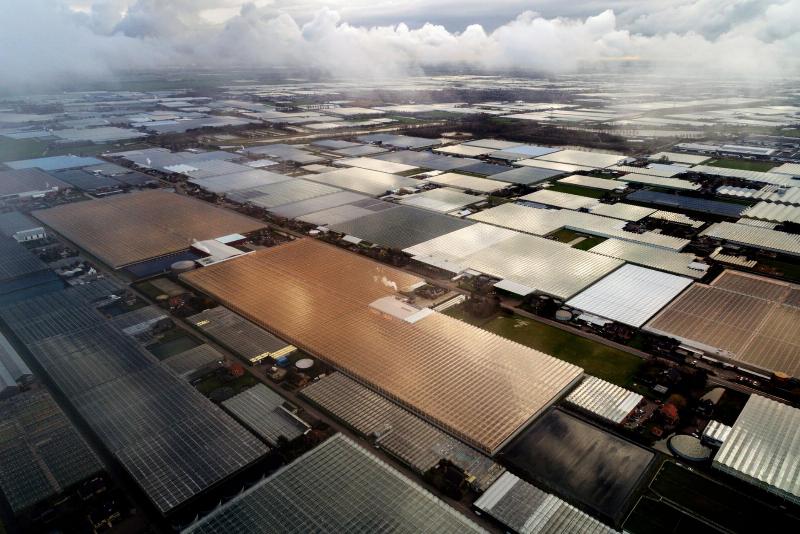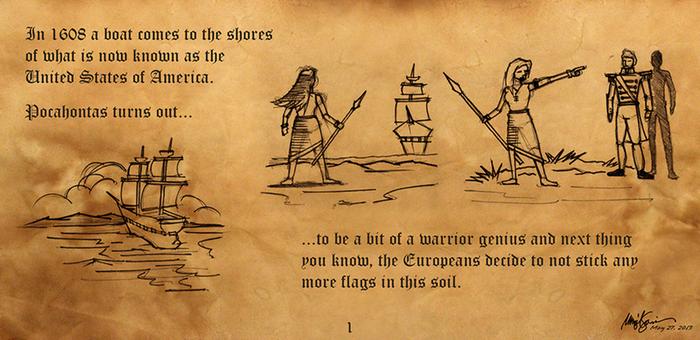
 8
8











In a potato field near the Netherlands’ border with Belgium, Dutch farmer Jacob van den Borne is seated in the cabin of an immense harvester before an instrument panel worthy of the starship Enterprise.
From his perch 10 feet above the ground, he’s monitoring two drones—a driverless tractor roaming the fields and a quadcopter in the air—that provide detailed readings on soil chemistry, water content, nutrients, and growth, measuring the progress of every plant down to the individual potato. Van den Borne’s production numbers testify to the power of this “precision farming,” as it’s known. The global average yield of potatoes per acre is about nine tons. Van den Borne’s fields reliably produce more than 20.
That copious output is made all the more remarkable by the other side of the balance sheet: inputs. Almost two decades ago, the Dutch made a national commitment to sustainable agriculture under the rallying cry Since 2000, van den Borne and many of his fellow farmers have reduced dependence on water for key crops by as much as 90 percent. They’ve almost completely eliminated the use of chemical pesticides on plants in greenhouses, and since 2009 Dutch poultry and livestock producers have cut their use of antibiotics by as much as 60 percent.
I had to underline this. it's a noble goal.. but...“Twice as much food using half as many resources.”
 ], but it is very innovative, and impressive that they are able to create such a volume of produce in such a small area, with a reduction in both chemicals and water while at the same time recycling nutrients.
], but it is very innovative, and impressive that they are able to create such a volume of produce in such a small area, with a reduction in both chemicals and water while at the same time recycling nutrients. "Never doubt that a small group of thoughtful, committed citizens can change the world; indeed, it's the only thing that ever has."-Margaret Mead "The only thing worse than being blind, is having sight but no vision."-Helen Keller




second highest exporter of food in the world, second only to the US














"Never doubt that a small group of thoughtful, committed citizens can change the world; indeed, it's the only thing that ever has."-Margaret Mead "The only thing worse than being blind, is having sight but no vision."-Helen Keller
 1
1




Gilbert Fritz wrote:
second highest exporter of food in the world, second only to the US
By value, or by bulk? If it is the second, that is extraordinary. If the first, it is more understandable; they probably export mostly vegetables, which have a much higher cost per pound then America's exports of staples.
Since relocating and restructuring their 70-year-old farm in 2004, the Duijvestijns have declared resource independence on every front. The farm produces almost all of its own energy and fertilizer and even some of the packaging materials necessary for the crop’s distribution and sale

"Our ability to change the face of the earth increases at a faster rate than our ability to foresee the consequences of that change"
- L.Charles Birch
My Herbal Tea Store (CA)




Roberto pokachinni wrote:The link that you have doesn't go directly to the greenhouse article, it goes to a link to subscribe to National Geographic, but also links to this, which I assume is part of the article:
In a potato field near the Netherlands’ border with Belgium, Dutch farmer Jacob van den Borne is seated in the cabin of an immense harvester before an instrument panel worthy of the starship Enterprise....
 1
1








Gilbert Fritz wrote:
second highest exporter of food in the world, second only to the US
By value, or by bulk? If it is the second, that is extraordinary. If the first, it is more understandable; they probably export mostly vegetables, which have a much higher cost per pound then America's exports of staples.
There are two kinds of people.
1) Those who can extrapolate from incomplete data
 2
2




 2
2




 1
1




Egypt and South Korea are teaming up to build a large agricultural complex that’s full of renewable energy and smart greenhouses. The new city will be located in Egypt near the Mediterranean shore. With the massive growth of middle-class consumers coming into the country over the next decade, this new area will provide a wealth of sustainability.
The Egyptian Government has created Vision 2030, which features developmental plans that are in line with the Sustainable Development Goals among the United Nations. These SDGs involve numerous issues that are hoping to be fixed by 2030, such as increasing clean energy and water, lowering carbon emissions, and much more.
Egypt is dealing with many issues, such as high birth rate, limited water, discrimination, and migration that stand in the way of achieving their sustainable goals. They will have one of the fastest growing middle-class markets according to Ogilvy, and this new city would provide a sustainable solution for the boost.








 5
5




"Also, just as you want men to do to you, do the same way to them" (Luke 6:31)








 2
2




Medicinal herbs, kitchen herbs, perennial edibles and berries: https://mountainherbs.net/ grown in the Blue Mountains, Australia
 1
1




 Flemish and Dutch text only but you might grasp what it is about.
Flemish and Dutch text only but you might grasp what it is about.
 ........
........



Standing on the shoulders of giants. Giants with dirt under their nails
 3
3




 1
1





|
Your opinion of me doesn’t define who I am --tiny ad
Remodel Green: Make Your House Serve Your Life by Kelly Hart (a Green Home Building Book)
https://permies.com/wiki/211284/Remodel-Green-House-Serve-Life
|




